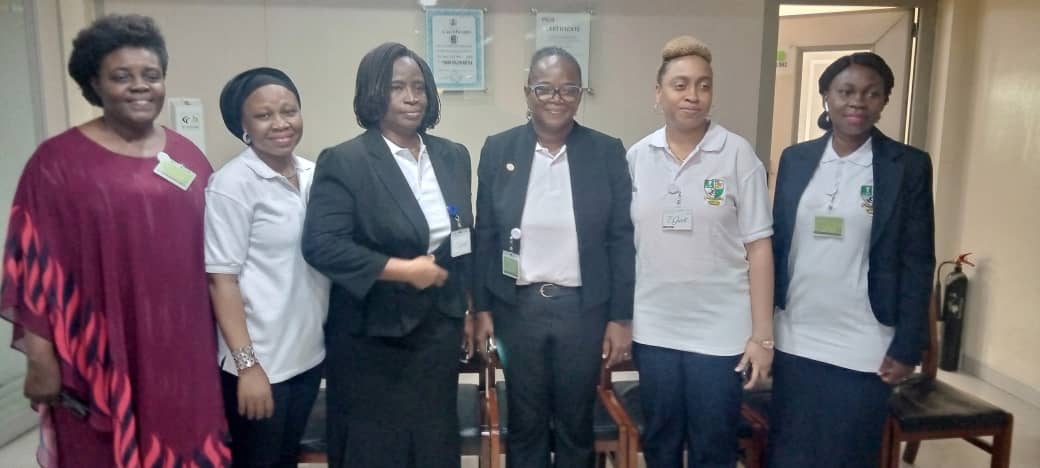
The Chairman, Lagos State Chapter of the Pharmaceutical Society of Nigeria (PSN), Pharm. Gbolagade Iyiola, has called on members of the Nigeria Association of Pharmacists in Academia (NAPA) to go further from what they are doing with the industry and start playing active roles in local production of pharmaceutical raw materials.
Iyiola made the call on Tuesday at a programme organised by the Lagos State Chapter of NAPA to mark “NAPA Day” within the 2022 PSN Scientific Week. The event also served as an opportunity for the academic pharmacists and researchers in Lagos to come together to awaken their roles in assuring medicines supply and medicines security in the country. The theme of the event is “The Role of Academia in Local Pharmaceutical Raw Materials Production for Medicines Security”.
Pharm. Iyiola commended members of the association, saying they are important to PSN, adding that the leadership of PSN will continue to work with NAPA to take the pharmacy profession to greater heights.
Also speaking at the programme, the Dean, Faculty of Pharmacy, University of Lagos; Prof. Aderonke Adepoju-Bello, noted that pharmacists in academia have vital roles to play in local pharmaceutical raw materials production in the country. She therefore charged all members of NAPA in the state to come out of their shell and sell themselves to the industry by embarking on research works that will enhance local pharmaceutical raw materials production.
“It is time we start strengthening our collaboration with other technical groups of PSN, especially the industry. It is time we come out of our shell and sell ourselves. We have a vital role to play in local pharmaceutical raw materials production. Our herbs in Nigeria are very good and we have many of them that we should begin to exploit. Let us begin to produce things that will benefit humanity, not just teaching”, Prof. Adepoju- Bello said.
In the same vein, the Chairman, Lagos State Chapter of NAPA, Dr, Arinola Joda, pointed out that there is need for pharmacists in academia to focus their research on meeting national needs. “As academic pharmacists, we need to focus our research on meeting national needs. Our research needs to be addressing burning issues around local production of raw materials from available local sources and self-sufficiency in the medicines supply chain. Collaboration with the pharma industry is germane to ensuring a quick and seamless assimilation of products of research to the bedside”, Joda said.
The keynote speaker, Dr Chukwuemeka Paul Azubuike, in his address at the event, pointed out that despite the several challenges before pharmacists in academia in the country, they still have vital roles to play in the development of pharmaceutical raw materials with desirable properties from natural sources.
According to Dr Azubuike, who was a visiting research associate at QUILL School of Chemistry and Chemical Engineering, the Queen’s University of Belfast, Northern Ireland, pharmaceutical raw materials (PRM) are the materials used to manufacture medicines. He explained PRMs can be active pharmaceutical ingredients (API), excipients or packaging raw materials. He also pointed out that PRMs can be synthetic, semi-synthetic or natural materials, noting that accuracy and precision are two major aspects that are essential in pharmaceutical raw materials production.
While also classifying the level of production by the pharma industry, Azubuike noted that it could be primary, secondary or tertiary production. He however stated that national medicines security can only be achieved when all the levels of production are in place and functional in a country and able to meet the medicines needs of the country.
According to Dr Azubuike, PRMs can be from natural or synthetic sources, as well as from renewable or non-renewable sources. The major sources are from minerals, plants and animals. Although Nigeria’s biggest export is crude oil, which represents over 75% of its total exported goods by value; Azubuike lamented that up till now, much attention has not been placed on the manufacturing of PRMs from the black gold.
The keynote speaker specifically pointed out that plant materials are a renewable source of energy for PRMs. He said “apart from containing some polysaccharides, different plant parts are rich in bioactive medicinal properties. There are at least 120 distinct chemical substances (active pharmaceutical ingredients) derived from plants that are considered important drugs currently in use. Carbohydrates are the major component of plant materials; hence, they can serve as a good source for carbohydrate-based polymers such as starch, gums and cellulose”; adding that also different PRMs and vaccines are animal-derived.
Dr Azubuike asserted that processing of PRMs requires new generations of technologies, which in turn require an improved understanding of each step in the unit processes, however, the major challenge is to ensure that the quality of the desired materials is kept within the required specifications.
He identified some factors militating against local production of raw materials, among which are poor leadership, bad policies; over-dependence on imported materials, devaluation of currency, inadequate funding of research and development projects, inadequate collaboration among researchers from different fields of expertise as well as inadequate collaboration between researchers and pharma industries, amongst others.
Azubuike posited that development of a product begins in the laboratory; hence academia plays a vital role in local production of pharmaceutical raw materials. He therefore called for collaboration among researchers from different areas of expertise, adding that academia should develop a stronger partnership with the regulatory bodies. He insisted that partnership with pharmaceutical industries is essential for commercialisation of the products of research.
“For the local pharmaceutical raw materials production to expand, it is critical for the government to be actively involved in addressing policies that need to be put in place to improve the access to finance, technology, and the market. However, academia has a vital role to play in the development of PRMs with desirable properties from natural sources. This can be achieved by proper collaboration among researchers in different fields of expertise, between academia and regulatory authorities, and also between academia and different stakeholders in pharma industries. This will lead to the generation of cost-effective raw materials for the manufacture of affordable and quality medicines, thereby ensuring medicines security”, Dr Azubuike said.
Meanwhile, the Deputy Director, Research Management Office of the University of Lagos, Dr Olusunmbo Olusanya called on NAPA members in Lagos State to look to establishing research centres that will enable them to carry out research projects effectively.
According to her, researchers in the university can establish a research centre and the four key considerations to do so are staffing; funding and sustainability; programme and administration. She said any group that intends to establish a research centre can send a proposal to the Research Management Office and provide answers to the four considerations to initiate the process.











